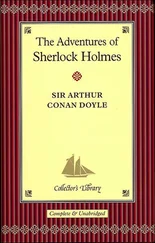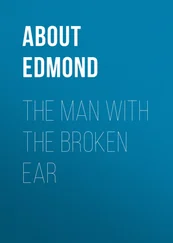The oily shadow. The squealing sound. Two more thick circles appeared on the window, one above the other, connected by a vertical line.
Tears spilled down Susan’s face.
A wind-bell rang.
The willow-branch shadows scratched at the lines and the circles.
12:02.

There was one bar — a dive out by the highway — that would still serve Randy, and Susan remembered the phone number. She pressed the receiver to her lips, whispering under the covers. She prayed that no one was staring at her through the crack between the drapes.
Susan remembered the staring eyes of the Maltin brothers burning holes in Randy’s back as he stood before the judge. She remembered the two bearded men holding their sister’s prosthetic hands, patting them, squeezing them when the judge announced the terms of Randy’s probation.
She remembered wondering if the Maltin brothers thought that metal hooks could feel.
“I’m sorry, Miz Hunter, but Randy left a good hour ago,” the sleepy barkeep drawled. “Ain’t he come home? Hey, listen, if anything happens he wasn’t at my place tonig — ”
Susan dropped the receiver.

12:03.
Gravel crunched.
A wind-bell rang.
Another booming slam. Metal smashing metal. Another scream.
Crying.

Susan’s heart thundered. The scream. The crying.
Randy.
Unsteadily, Susan rose from the bed and drew a flannel bathrobe over her slim shoulders. She stared at the drapes, trying to separate the tangled shadows from the thick, painted lines on the glass.
Randy’s work-boots crunched over the gravel path. His shadow melted across the window.
Susan pulled a cord and the drapes whispered open.
Randy swayed in the bright glow of the full moon, a relieved smile knifed across his sweaty face. His battered, yellow Camaro was parked on the lawn directly behind him, the hood open and smeared with blood. Randy raised the smashed mess that had once been his callused right hand and pressed it against the bedroom window. Splintered bone and torn flesh squealed wetly across the glass, leaving a bloody trail.
Susan sank into the shadows, unable to look away. The horrible squealing sound screamed in her ears.
A backward “e” appeared on the glass.
Finished, Randy stumbled across the gravel path and, one last time, slammed the Camaro’s hood. Metal smashed metal. He sank against the bloody grille and sobbed.
Susan moved to the window, reading the backward writing. Two words.
Forgive me.
A brass wind-bell rang in the willow branches above Randy’s head. Whimpering, he wrapped his ruined hand in his shirttail and closed his eves.
Susan’s hands trembled. Black shadows slithered around her fingers and poured, like cold blood, over her delicate wrists. She winced. The tiny bones beneath her palms grated like sharp stones. Her fingers throbbed.
Staring at her husband, Susan curled her fingers into fists and embraced the pain.
WHERE THE WOODBINE TWINETH
When the war was over the living came home. Not a rifle among them but those that had been transformed into crutches or canes, but rifles would not have mattered to men who were tired of war and wounds and death. Their bellies were empty and they broke their swords into plowshares, and they embraced a land they remembered and people they could not forget and wished the simple wish that they had never gone to war.
Of course, the dead came home, too. They came at night, and warily… their bellies bloated with grave worms, their hearts as heavy as fallen fruit. They marched in tattered battalions beneath willows that whispered in the sultry summer wind, and they paused at forgotten crossroads bordered by thorny brush and bayonet bramble, and they marched on and made their camps in cemeteries where mortal footfalls were seldom heard, far past the place where the woodbine twineth.
That was how it was with the living and the dead. But others came home, too. Men like John Barter. Barter had seen many places since leaving the South. Places to the north, places with names that he could never forget. Gettysburg… Cemetery Ridge… Devil’s Den…
But John Barter did not speak of those places. He spoke hardly at all. He came home with a mouthful of bone buttons that he had sliced off a Union sergeant’s uniform. He chewed and sucked those buttons all the way from Virginia, tramping the lonely miles in sunshine and in shadow, and he came home with rags on his feet and seven toes, and he came home with a sword that was as sharp as an officer’s tongue.
He came home with a fiddle, too, an instrument given him by his wife on the day of his enlistment. A single nail pierced the fiddle’s neck, the wood scissored around it like the slivered hand of Jesus on a crucifix. Still, the fiddle made sweet music. All Barter’s comrades said so… both the living and the dead. Even a Yankee at a distant outpost could be moved to tears by the sound of Barter playing “Aura Lee” on the eve of battle.
So Barter brought the fiddle home, just as his wife knew he would. He carried it all the way from Virginia wrapped in a mildewed regimental flag, and her heart beat a little faster at the sight of the instrument in her husband’s hands. Of course, the nail that pierced the fiddle’s neck had rusted since she had driven it home on that far-off day, but she had expected that. Time rusted all things.
Her name was Loreena, and she was a woman only seven years gone from a country very different than this one. That was the reason she knew the things she did. In Loreena’s country, the land was so very green and the shadows so very long that in the end everything was nearly black. Heavy clouds held the people to the land and did not let them stray, but the clouds could have been as heavy as iron and still they would have been unable to hold Loreena. She was a woman made for other places, and she did not fear the heavens and she did not fear the earth.
Loreena did not fear much of anything. Not the living. Not the dead. As a girl she had learned many secrets from her grandmother, a woman who spoke only in whispers. Loreena kept those whispered words in her head and in her heart. She listened to them still, as she practiced the craft her grandmother had taught her. The old woman’s whispers told her that the world held a place for all things, and Loreena wanted nothing more than to stake one small corner of it for her husband and herself, for she loved John Barter as she could love no other.
When Barter’s ragged feet crossed the threshold of their cabin. Loreena took the fiddle from his hands. Even before they embraced, she took it. Barter’s picture hung on the wall, secured by a nail grown nearly as rusty as the one that pierced the fiddle. Barter hardly recognized himself, for the picture had been made before the war.
Loreena took that picture off the wall as if it were something dead and threw it into the fireplace. Then she grabbed Barter’s fiddle by the neck — as if it were something alive — and she nailed it to the wall in the picture’s place. Finally she parted her husband’s lips with gentle fingers and, one by one, took the bone buttons from his mouth and placed them on the mantelpiece.
Still, John Barter did not say a word, so Loreena kissed him deeply, and she kissed him long. And when their lips parted she stripped the ragged uniform off her husband’s back and tossed it into the blazing fireplace, and then she took off her clothes and guided her husband’s fingers over her naked flesh until they found the tight circle of silk around her neck.
Читать дальше













